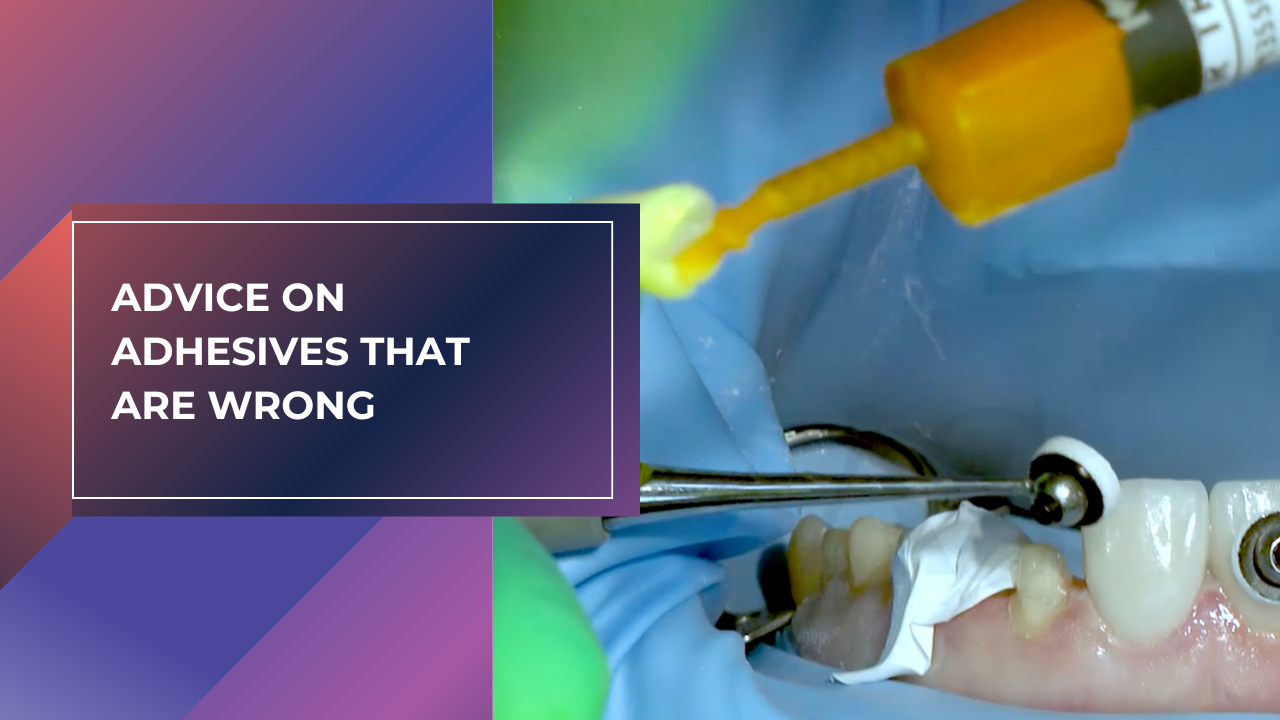Advice on Adhesives that are Wrong
Oct 03, 2023
This past week has been a whirlwind for me as I had the incredible opportunity to present and share insights on bonding and cementation for 3M at FDI Sydney. As FDI has just concluded, I couldn't resist the urge to share some of the things in my presentation about advice that you may have received in the past about bonding that are wrong. Here are my TOP 2.
Number 1: Always use linings to cover dentine. WRONG!
At dental school, it was taught to us like a religion to use linings underneath all our restorations to decrease postoperative sensitivity. However the literature tells us that the evidence for the use of linings is limited at best (Blum et al 2019). In actual fact the oldest bonding agents (4th generation total etch adhesives) were shown to eliminate postoperative sensitivity and adverse effects to the pulp. This was proven back in 1979!
We must stop thinking what aspect of the materials we use that may have caused the postoperative sensitivity and start thinking about what aspect of our technique has caused the problem.
Number 2: The higher the generation the better the adhesive is. WRONG!
Adhesives have traditionally been classified based on generations and clinicians can become confused to think of them like iPhones where newer generations are better than older generations. However, start thinking of what's the fundamental purpose of our adhesives in order to decide which generation is the 'best'.
The fundamental purpose of our adhesive is to stick composite onto dentine and enamel AND to be able to form the most stable hybrid layer with dentine. When we look at it that way, the oldest 4th generation adhesive is still the gold standard in terms of bonding potential and the formation of the thickest hybrid layer. It is the adhesives that scientists always compare newer bonding agents to.
Newer adhesives simply exist because they have less steps. However, if you never understood the fundamentals of bonding, you're still going to have the same problems but with less steps. You're still going to have the same technique sensitivity but with less steps.
Bonding can be difficult to understand, however, I am a firm believer that mastering the fundamentals of bonding and cementation is essential for you to be able to get the most out of your restorative dentistry. In order to do that, we must be able to critically question if we are currently following any outdated advice.
The information contained in this blog post is based on Andrew See’s own experiences, views and knowledge and Andrew See and Dental Mastery Academy Pty Ltd do not guarantee that any particular outcome (including clinical outcome) will be achieved from using any of the information contained in this material. The material is for personal use only and not to be copied, reproduced, re-used, published, communicated, adapted, or used to create derivative works from or commercially exploit the materials; distribute, sell, licence or otherwise all or any part of the materials. © Dental Mastery Academy Pty Limited ABN 23 665 239 510.
Join Our Network of High Performing Dentists
Get aesthetic tips that help you avoid trial and error, straight to your inbox.
We hate SPAM. We will never sell your information, for any reason.




